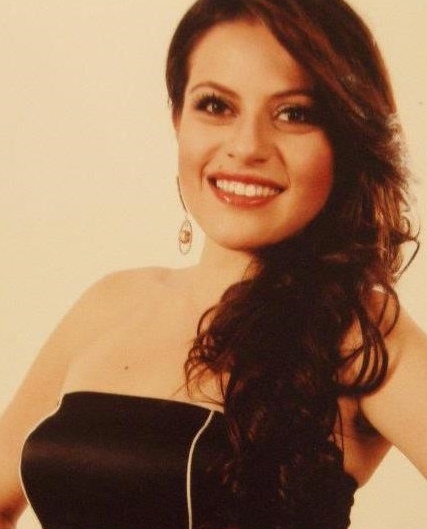 The Tradition of Restricting Freedom
The Tradition of Restricting Freedom
By Felipe Salas Bloise
It is not unusual that, in a country like Colombia, the battle for civil, political, social, individual, and economic rights is something that happens every day. And I do not speak of the normal transformation and constant evolution towards new horizons in the landscape of any society, no.
I speak of the constant and systematic violation of these rights by the state, as those in office seek the satisfaction of the Catholic majority, the pulpit, corporations, and trade associations. Broadly speaking, they represent the “majority” that ignore individual liberties at their most basic form: natural rights.
In a country where Uber was vetoed, where the signing of a free-trade agreement is considered “high treason,” and where journalists and the opposition are silenced, it is logical that adoption by same-sex couples was not fully admitted by the Constitutional Court last month.
Freedom to form a family in Colombia is anything but free, nor is it a protected right for all. Article 41 of the nation’s constitution legally establishes that the formation of a family, as the essential core of the society, can only consist of a man and a woman.
Although there are theories that claim the rule has an exception to allow the recognition of different ways of forming a family, these are still interpretations, far from the will of most constituents.
Obviously, the restriction entails serious contradictions with instruments of international law that Colombia has signed, and that have been incorporated into her own legislation. These prohibit any kind of discrimination, and protect the rights of couples and the homosexual population in general from distinct administrative or legal treatment — not to mention the rights of children, where we have indeed transgressed international obligations.
The Colombian Constitutional Court’s baseless decision to limit same-sex couples’ freedom to adopt children — to only if one is the biological parent — breaks from its rights-based approach to civil liberties that sought to adapt domestic law to global and inter-American human-rights legislation.
Apparently there is no reason for gay couples to be allowed to adopt when the couple has no biological bond with the child. But in the daily life of a family it makes no difference, and regardless of the parents’ sexual orientation the family will still be subject to the same strengths, flaws, love, and risks as any other.
Felipe Salas Bloise is a Colombian, libertarian lawyer who specializes in public law and public administration. Follow @FelipeSalasBloi.
 Natural Law Does Not Change
Natural Law Does Not Change
By Gabriela Ortíz Pozo
EspañolTo adopt a child is to take up responsibility for the upbringing of a human being, provide for food, clothing, and education. It also means providing a social sphere where the child can develop his emotional, spiritual, and intellectual potential. The family is the fundamental unit of a society.
The International Hague Convention and other rules dictate that adoption must, as a basic principle, preserve the child’s best interests. This means to choose what is best for his development in every aspect.
The concern with adoptions from same-sex couples is that minors may have their concept of what is natural (the creation of life by a male and a female) distorted. The children may well have the attention of two “fathers” or “mothers,” as well as all the necessary food, clothing, and education. But not being in contact with the natural biological order, they could remain defenseless when stepping outside this family and into the larger society, which is increasingly complex but still based on the principle of gender complementarity.
This may lead to emotional complications, personality disorders, low interaction with the opposite sex, etc. If a child’s emotional, mental, and spiritual integrity are jeopardized, his welfare is at risk.
When researching academic studies on the matter of same-sex adoption, we soon find they are scarce, and none of them has enough evidence to convince everyone. However, there are some facts we should consider: it is generally known that children under 10 are developing their character and personality, and they are great imitators of everything they see around them. Children at that age are very curious and open to new concepts and definitions.
That’s when they need to observe examples of what exists out there: masculine, feminine, white, red, bad, and good. The home is their base for observation, as they increase their knowledge and learn to interact with their surroundings, allowing for deeper learning in later years.
The identity of a human being forms from several factors: biological, cultural, emotional, religious (or non-religious), and economic, among others. While a person’s gender or sexual orientation does not determine his identity, his principles and values do, many of which come from the relationship each one has with God — or the absence of it.
Hence the majority of people, myself included, being consistent with their principles, faith, and customs, are opposed to that which goes against nature and a child’s adequate upbringing.
We can use logic, and principles shared by over 75 percent of the world’s population, to affirm that life is born from both sexes, and it is natural and beautiful for that life to develop in an environment where it can benefit from the contributions of both the male and female sides. This is important for the child’s development and will help him grow aware of nature rather than of human excuses.
Man-made laws may change, but the natural law remains.
Gabriela Ortíz Pozo is an Ecuadorian politician who has completed studies in international relations and jurisprudence, and serves as the vice president of the youth branch of Ecuador’s Social Christian Party (PSC). Follow @gabyortizpozo.
[yop_poll id=”20″]
 Versión Español
Versión Español




 The Tradition of Restricting Freedom
The Tradition of Restricting Freedom Natural Law Does Not Change
Natural Law Does Not Change







